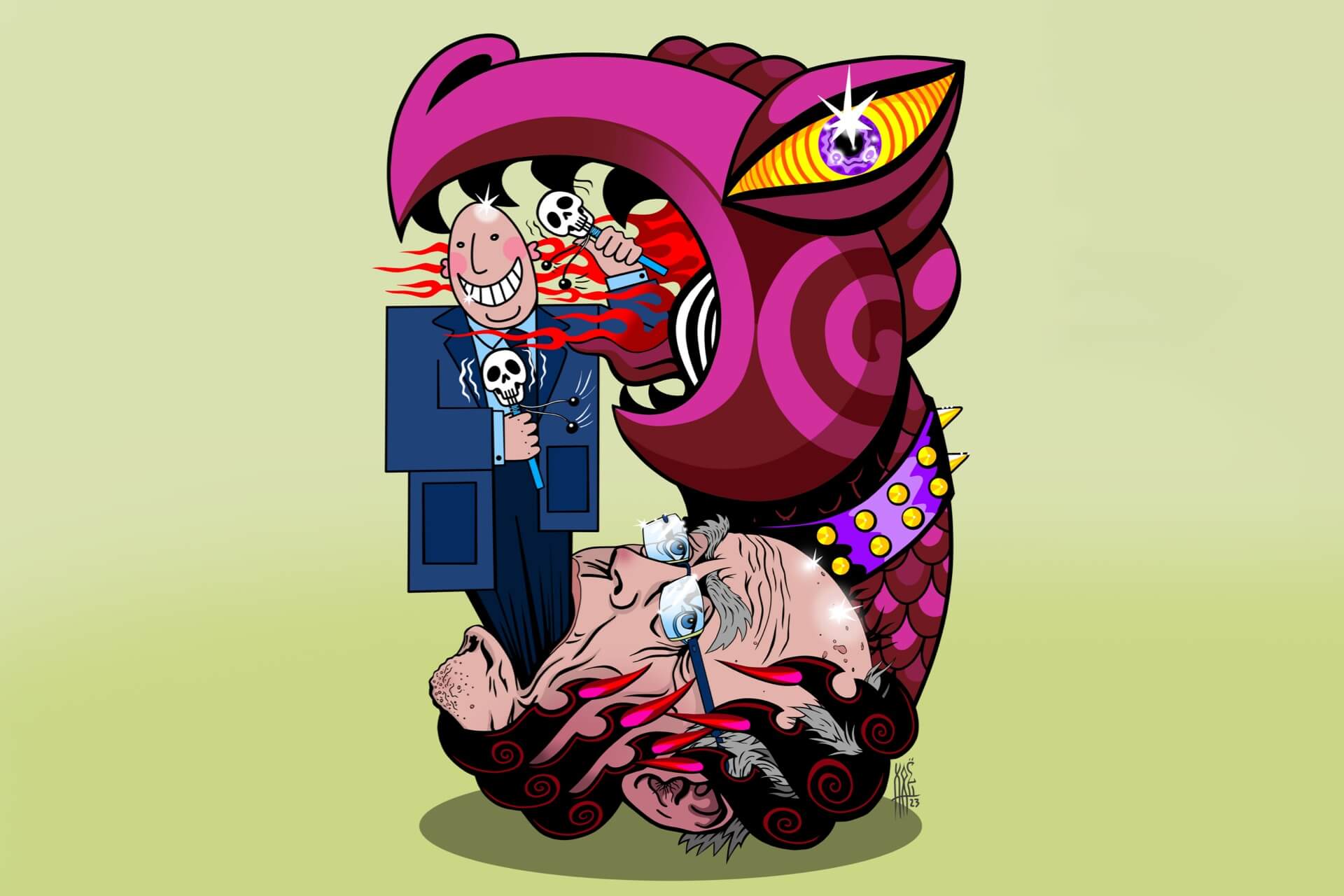Jul 27, 2023 Politics
In the mythology of Don Brash’s infamous Ōrewa speech in 2004, political commentators usually only remember the National Party’s meteoric polling rise. A month before the speech, National was languishing at 28% in the polls, but in the weeks afterwards, the party shot up to 45% — the largest single poll movement in the history of Colmar-Brunton. But the more important lesson, the one that commentators sometimes neglect, is this: National lost the next election.
Helen Clark and her Labour-led government won a third term. Blowing the racist dog whistle didn’t work for Brash, and if history is any guide, it won’t work for Christopher Luxon, either. This optimism might come across as misguided when groups like Groundswell wave racist placards from their tractors, the Taxpayers’ Union issues dark warnings of ‘co-governance’ boards that will decide what you can do with your land, and National promises to do away with Te Aka Whai Ora, the Māori Health Authority.
From that angle, it may seem like we’re back in the bad old days of Brash and iwi/Kiwi. But I’m not convinced. During the past two parliamentary terms, every party in Parliament has boasted either a Māori leader or deputy leader: Simon Bridges for National; Kelvin Davis for Labour; Marama Davidson for the Greens; Winston Peters for New Zealand First; and even David Seymour for Act.
In the current term of Parliament, Māori make up almost a third of the ministerial list. Thirty per cent of New Zealanders can speak at least some te reo Māori and more than half agree it should be a core subject in schools. Matariki is a public holiday. Treaty settlements and co-governance agreements continue at pace.
New Zealand is a different, and better, country in 2023 than it was in 2004. But what does the government think? In May, the prime minister took aim at the opposition for opposing bilingual road signs, rightly accusing National of trying to appeal to a “racist underbelly”. A few weeks before that raruraru, I’d put the question to Hipkins: could race become a political football this election? His answer was straightforward. We cannot give ground to racism. Instead, we should move forward.
“I think each of us, as politicians, choose how we operate,” Hipkins said. “I try to be consistent and work to unite New Zealanders. I think if we keep introducing good policy for everyone, we’ll foster better long-term outcomes for all New Zealanders, which in turn encourages tolerance and diversity. We have a way to go but I’m absolutely certain the more we do, the better we will be.”
Hipkins sees Matariki as a fundamental turning point. “The establishment of Matariki as our first truly indigenous public holiday was also an important moment in our history,” he says. “I loved seeing New Zealanders develop new ways of marking the holiday. That will only grow, and I’m sure Matariki will increasingly become a day in which we proudly celebrate Māori culture and traditions and what they mean for today.”
Up and down Aotearoa New Zealand — even that name for the country continues to be more and more widely used — there’s growing acceptance that central government, councils and businesses must engage with and respect tangata whenua when making decisions. At the last local election, more than half of all regional councils had implemented Māori wards. At the election before that, not even a quarter had. That alone is a testament to how far we’ve come in the almost two decades since Ōrewa.
Of course, that’s not to say things are perfect. Discrimination and intolerance still happen, but now, rather than accept it, people are more likely to call it out. In some ways, reactionary movements are a sign of how far and how fast we have come. If Aotearoa wasn’t making progress, the various reactionary groups wouldn’t feel that their privilege is threatened and wouldn’t be throwing a tantrum. They are, at heart, movements desperately clinging to a past that’s best left behind.
Where does that leave the election? I like to think my children — with their Māori, Pākehā and Chinese whakapapa — and our whānau are a microcosm of the country we are becoming. It’s my dream that, when my kids are grown, we’ll no longer tune in to leaders who try to turn us against ourselves, and we will find strength in diversity, not fear. We’re more diverse than we were in the past, and will become more diverse still. We’re more tolerant, and will become more tolerant still. And we’re more intermingled, and more cynical, towards people who want to drive us apart.
The politics of Ōrewa still have no chance.
Tuia ki runga, tuia ki raro, tuia ki roto, tuia ki waho, ka ron- go te ao, ka rongo te pō, haumi e, hui e, taiki e.
Mā mua ka kite a muri, mā muri ka ora a mua. He whakataukī tēnei e pā ana ki te whakahirahiratanga o te mahi ngātahi. Ka tika te mihi atu ki ngā kaihautū me ngā hikuhiku.
Ka whakawhirinaki tētahi ki tētahi.
Unite above, unite below, unite within, unite beyond. Feel the world. Feel the night. Now, let’s come together.
Leaders provide vision and direction to their followers, while followers give support and vitality to their leaders.
This story was published in Metro N°439.
Available here.







